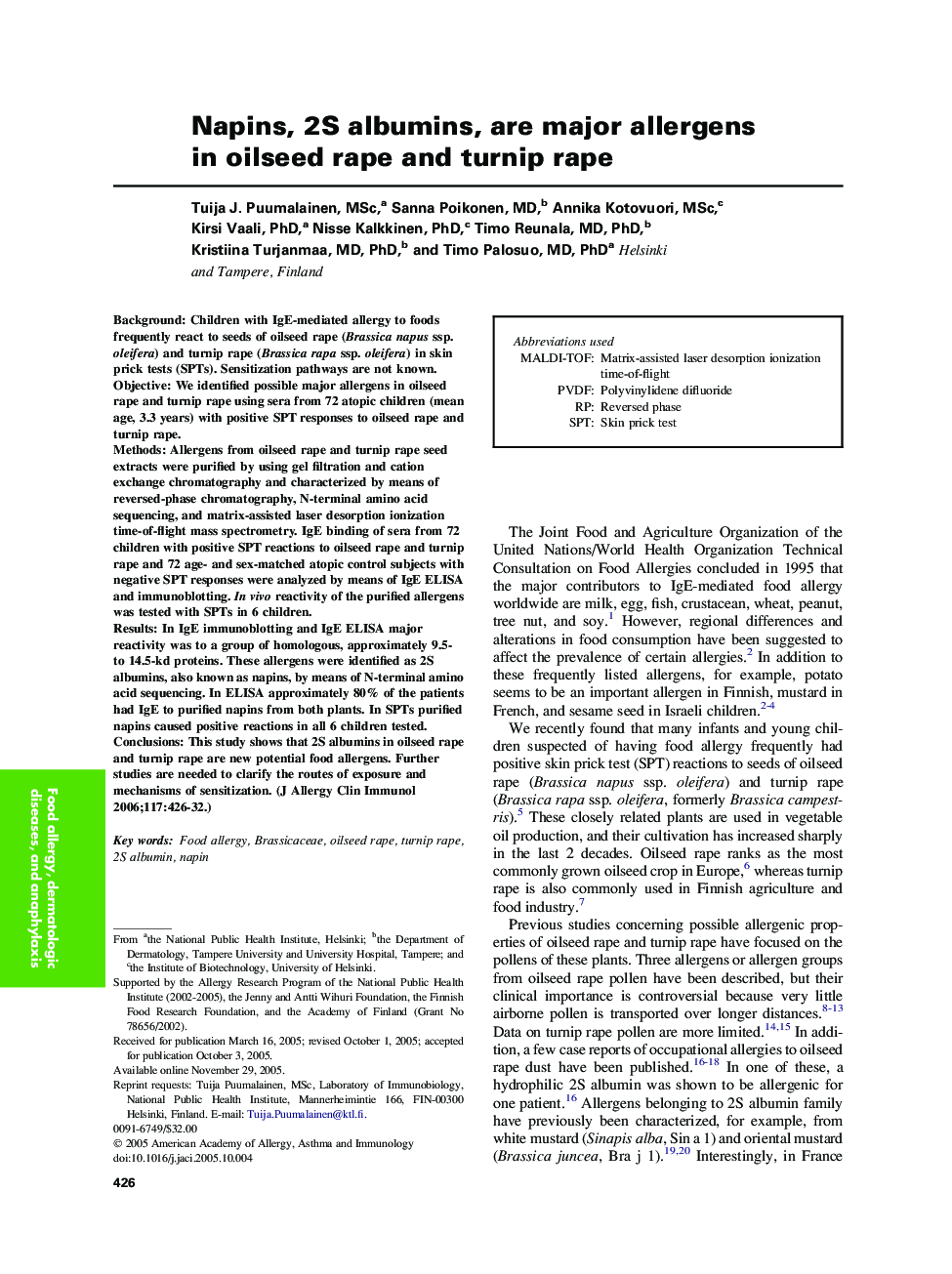| Article ID | Journal | Published Year | Pages | File Type |
|---|---|---|---|---|
| 3203273 | Journal of Allergy and Clinical Immunology | 2006 | 7 Pages |
BackgroundChildren with IgE-mediated allergy to foods frequently react to seeds of oilseed rape (Brassica napus ssp. oleifera) and turnip rape (Brassica rapa ssp. oleifera) in skin prick tests (SPTs). Sensitization pathways are not known.ObjectiveWe identified possible major allergens in oilseed rape and turnip rape using sera from 72 atopic children (mean age, 3.3 years) with positive SPT responses to oilseed rape and turnip rape.MethodsAllergens from oilseed rape and turnip rape seed extracts were purified by using gel filtration and cation exchange chromatography and characterized by means of reversed-phase chromatography, N-terminal amino acid sequencing, and matrix-assisted laser desorption ionization time-of-flight mass spectrometry. IgE binding of sera from 72 children with positive SPT reactions to oilseed rape and turnip rape and 72 age- and sex-matched atopic control subjects with negative SPT responses were analyzed by means of IgE ELISA and immunoblotting. In vivo reactivity of the purified allergens was tested with SPTs in 6 children.ResultsIn IgE immunoblotting and IgE ELISA major reactivity was to a group of homologous, approximately 9.5- to 14.5-kd proteins. These allergens were identified as 2S albumins, also known as napins, by means of N-terminal amino acid sequencing. In ELISA approximately 80% of the patients had IgE to purified napins from both plants. In SPTs purified napins caused positive reactions in all 6 children tested.ConclusionsThis study shows that 2S albumins in oilseed rape and turnip rape are new potential food allergens. Further studies are needed to clarify the routes of exposure and mechanisms of sensitization.
